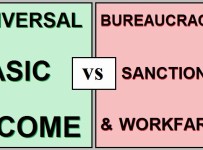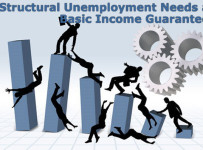Social Impact of crisis

Slide di presentazione al Parlamento Europeo A B Atkinson, Nuffield College, Oxford, and London School of Economics. Clicca qui per vedere le slide
17% of EU27 population at risk of poverty

In 2008, 17% of the population in the EU27 were at risk of poverty. This means that their income after social transfers was below the poverty threshold1 . Since 2005, the at-risk-of-poverty rate in the EU27 has been nearly stable, varying between 16% and 17%. Per leggere la sintesi del rapporto clicca qui
Un revenu minimum au niveau européen ?

Un Européen sur six est menacé de pauvreté. La crise fragilise les personnes les plus exposées comme les chômeurs ou les travailleurs les moins qualifiés. Pour les aider, les députés européens envisagent la création d’un revenu minimum européen. Pour préparer un rapport sur le sujet, ils ont débattus avec des membres de la société civile. […]
Unione Europea: l’8% dei lavoratori vive sotto la soglia di povertà.

Working poor in Europe. The objective of combating social exclusion and poverty was a prominent feature of the Lisbon Strategy in 2000, which presented the vision of a socially cohesive as well as an economically prosperous and competitive European Union. Employment is often claimed to be the best protection against poverty. However, available data at EU […]
ILO – Rapporto 2010-2011 sulla sicurezza sociale: garantire una copertura sociale con la crisi e oltre

Social security is a human right as well as a social and economic necessity. All successful societies and economies have employed development strategies where social security systems played an important role to alleviate poverty and provide economic security that helps people to cope with life’s major risks or the need to quickly adapt to changing […]
Il disagio occupazionale in Italia nella crisi – UIL 2010

Il disagio occupazionale in Italia nella crisi – UIL 2010 Clicca qui per leggere lo studio
Lo stato dell’Unione Europea. Il rapporto 2009.

Nel Consiglio Europeo tenuto a Lisbona nel marzo 2000, i Capi di Stato e di Governo avevano posto l’obiettivo di rendere l’Unione Europea l’economia più competitiva e dinamica del mondo, basata sulla conoscenza e capace di dar vita a una crescita economica sostenibile, di aumentare e migliorare i posti di lavoro e di dar luogo […]



